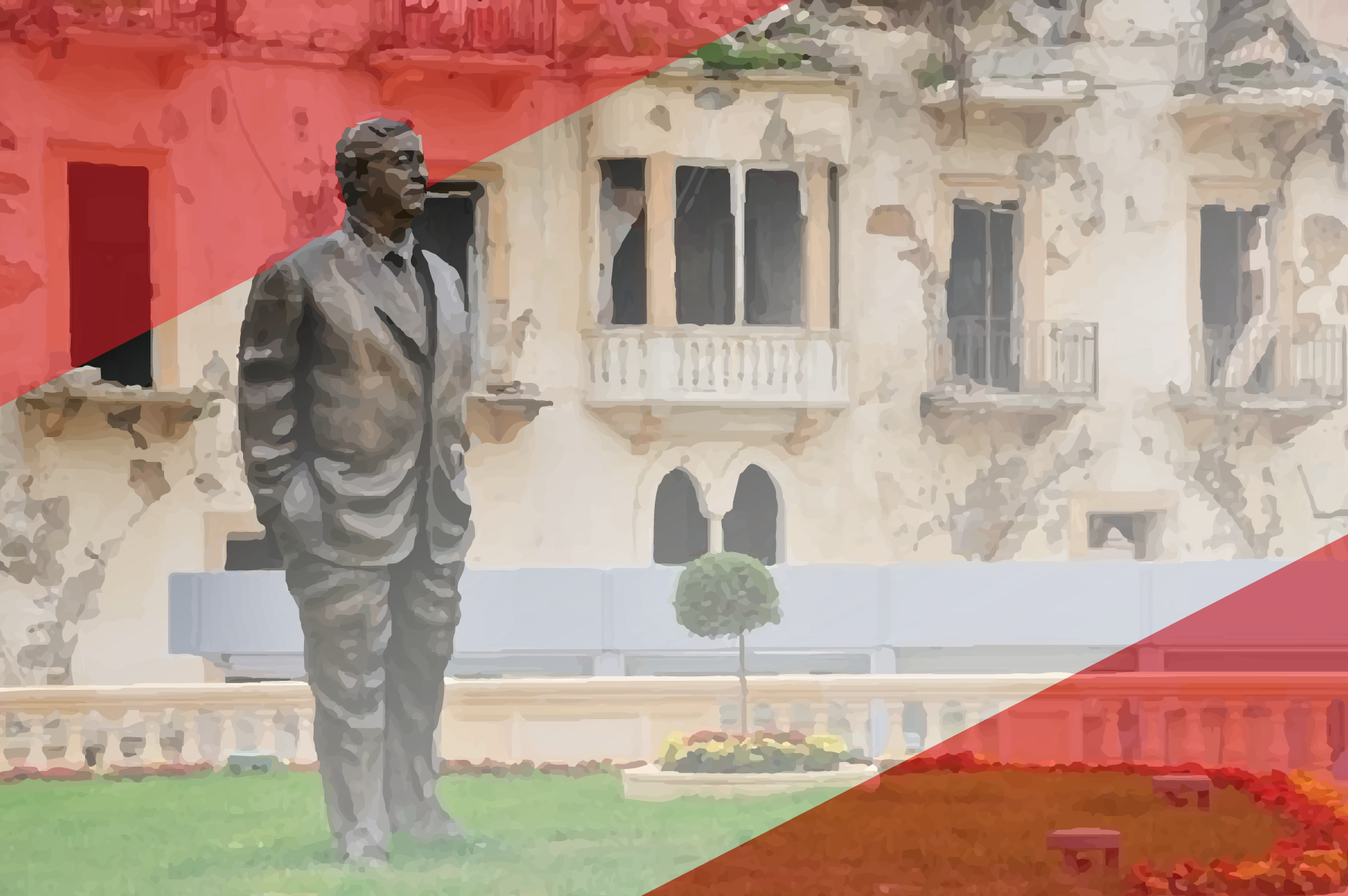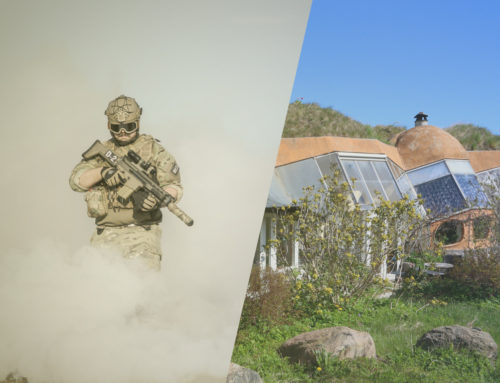By Laura N. Bell
Lebanon is once again in a precarious position. Since the deadly Beirut port explosion in August 2020, the government has resigned, additional explosions have occurred south of Beirut, and the beleaguered state has been dealing with a number of other crises, including the COVID-19 pandemic, an unstable currency, and rolling blackouts. Food shortages can now be added to the long list of challenges facing this small Mediterranean state. Human Rights Watch reports that food prices have risen more than 300% in 2020 and that more than 55% of the population is now living in poverty[i]. With the government struggling to maintain the most basic of public services, the current global pandemic (the likes of which the broader world has not seen in 100 years) greatly exacerbates the everyday challenges of life in Lebanon. Thus, it comes as no surprise that the long-awaited ruling by the Special Tribunal for Lebanon (STL) in the 2005 assassination of former Prime Minister Rafik Hariri, failed to garner much attention.
Just one year ago, in October of 2019, anti-government protests swept the nation, forcing the resignation of the government, led by Prime Minister Saad Hariri (son of Rafik Hariri). With the state now in turmoil, Hariri is once again serving as Prime Minister (returning to his former post in late October 2020) and attempting to form a new government. While the Lebanese are certainly no strangers to societal and political upheaval, the past year has been one of so many challenges that citizens must be feeling, to paraphrase the words of Thomas Paine[ii], that these are the times that try their souls.
Largely lost in the midst of these trying times is awareness of the judgment reached in the Special Tribunal for Lebanon’s (STL) trial of four individuals accused of conspiring to commit a terrorist act by assassinating former Prime Minister Rafik Hariri in February 2005. Hariri, along with twenty-one others, was killed when a suicide bomber detonated a truck filled with the over two tons of a high-grade explosives as his convoy passed by the St. Georges Hotel in downtown Beirut. The blast was massive, leaving a thirty-foot wide, six-foot deep crater in the road on which it occurred.
Hariri was an extremely popular leader in Lebanon, credited by many with rebuilding the state after a long and brutal civil war that ended in 1990. When the war ended, a negotiated settlement gave Syria some official involvement in Lebanese affairs; Syrian troops had already been in Lebanon for years. Over time, however, many in Lebanon grew weary of the heavy-handedness of Syrian President Bashir al-Assad and of his intelligence apparatus meddling in, if not outright directing, Lebanese politics. As prime minister, Rafik Hariri initially worked with both Hezbollah (who had members of its political wing serving in parliament) and the Syrians (indirectly), but after Bashar al-Assad became president of Syria in 2000 the relationship began to change. It is reported that over time, Hariri’s relationships with both Hezbollah leader Hassan Nasrallah and Syria soured. Syria was leery of the international prominence of Hariri and his stated desire for an independent, democratic Lebanon. Nasrallah was unhappy with some of the projects Hariri was beginning in the country, such as a plan to build a highway connecting Beirut to southern Lebanon.
Despite a public divide within Lebanon between those who wanted an independent state which would be free from Syrian influence and those who wished for the Syrian presence to continue, international pressure mounted for Syria to withdraw from Lebanon. After Bashar al-Assad became president of Syria in 2000, Syrian involvement in Lebanon increased and, according to witness testimony before the STL, Syria became “more aggressive, dominant and provocative[iii]”. In September 2004, the United Nations Security Council passed Resolution 1559 calling for foreign occupation of Lebanon to end.
Hariri met with Assad at least twice in the fourteen months prior to his death. In December 2003, Assad directed Hariri to support then-Lebanese President Emile Lahoud (a pro-Syrian politician). Additionally, hearsay evidence indicates that Assad instructed Hariri not to hold any sort of public gathering or to attend Friday prayers in public, possibly in an attempt to mute Hariri’s influence. In August 2004, Hariri again met with Assad in Damascus and this time was told that he must support Lahoud’s presidential term extension or else Assad would “break Lebanon over” Hariri’s head. Hariri resigned from his post as prime minister in October 2004, in protest over Lahoud’s Syrian-imposed extension as president.
After his resignation, Hariri remained active in politics. Indeed, earlier on the morning of his assassination, he had attended a parliamentary meeting. Hariri had begun building a coalition within the country to publicly oppose Syrian involvement in Lebanese affairs, and meetings of this coalition occurred as early as September 2004 in the Hotel Bristol. We know now, due to the STL’s investigation, that Hariri was under surveillance by individuals named in the STL’s case as early as October 2004. Evidence suggests that the decision to assassinate Hariri was likely made in January 2005 (although the investigation could not conclude with certainty who was responsible for the decision). The bombing of his convoy occurred on February 14, 2005.
The United Nations condemned the attack, and a team of UN investigators were in Lebanon by February 25th. In March 2005, the UN investigators reported to the UN Secretary-General that an international investigation of Hariri’s assassination was warranted. In April 2005, the UN Security Council passed Resolution 1595 establishing the UN International Independent Investigation Commission (UNIIIC), which led to the establishment of the STL in May 2007.
The STL brought charges against four individuals and the prosecutorial process began with indictments in 2011. Those charged could not be located and a decision was made in 2012 to hold trials in absentia. The judgement was announced in August 2020 with three of those charged found not guilty and one, Salim Jamil Ayyash, found guilty in the conspiracy to assassinate Hariri. While the judgement was originally scheduled to be released and read to the public on Friday, August 7, 2020, the STL delayed the reading until August 18th, after the Beirut port explosion occurred on August 4th. The finding of the STL is that a conspiracy to assassinate Hariri did indeed exist and that it was likely planned and organized by a group, yet the STL failed to find solid evidence of who ordered it and did not name a specific group. Thus, Ayyash is the lone individual held accountable (and even he is still not in the custody of the STL) for the massive bombing that killed twenty-two people and left a thirty-foot wide crater in a Beirut street.
Reaction within Lebanon to the verdicts was muted. It is likely that Lebanese citizens were too far removed from the assassination that occurred fifteen years prior and too distracted by the port explosion and other current crises to have much energy for either celebration or disgust at the verdict. Journalists and scholars are hard-pressed to find satisfaction with the outcome on the streets of Lebanon or in the halls of international justice.[iv] If one looks deeper and peers beneath the rubble of all that has been 2020 in Lebanon, there is success to be found in the STL, however limited.
The success comes from the record and the investigation. In the work of transitional justice, the importance of memory and the establishment of an official record is regarded as necessary for reconciliation, if not for justice itself. While in this case the need for memory per se is likely not as imperative as in instances of genocides or disappearances, the importance of an official, credible investigatory record can still not be overstated. The investigation did not uncover a smoking gun, leading to irrefutable evidence against Hezbollah leadership or the Assad regime for the assassination, but logic dictates that an operation of the magnitude of the one that targeted Hariri was not organized by one, or even four, individuals. The STL stated as much in its judgment.
Thus, lost in the legitimate criticism of the STL for failing to identify those truly responsible for the devastating attack, is the fact that, for the first time in international law, a credible investigation into a terrorist assassination occurred followed by a credible trial proceeding. It was a proceeding that established a record of the crime using geolocation evidence from mobile phones, that effectively applied the domestic law of a Middle Eastern state, that conclusively tried a crime of terrorism, that further tried the crime of assassination, and it was a proceeding that proved it is possible to hold such trials in absentia. Despite the absence of multiple convictions or the identification of the shot callers in the larger conspiracy to kill Hariri, the STL should, for all the reasons outlined above, be considered somewhat successful. The truth is that the path to new norms in international justice is often paved by baby steps.
It is unfortunate that the work of the Special Tribunal for Lebanon is not receiving recognition for the arduous task of conducting the first ever international proceeding to prosecute a terrorist crime. Producing such a detailed account of the events that led to Hariri’s assassination in a situation where many actors did not wish for the investigation to move forward at all, proves that the work can be done, that the record can be produced, and that some measure of justice can be achieved. While it is far from perfect justice for the victims, the record put forth by the tribunal acknowledges the conspiracy behind the incident of February 14, 2005, shines a light on how it happened, and achieving for them a great deal of understanding. Consequently, the STL is providing at least a small measure of consolation for the victims while also improving upon existing international law mechanisms.
[i] https://www.hrw.org/news/2020/11/10/food-and-cash-aid-vital-if-lebanon-goes-back-lockdown
[ii] See The American Crisis (1776). https://collections.libraries.indiana.edu/lilly/exhibitions_legacy/history/american-crisis.html
[iii] See the STL Judgement in the Ayaash, et al. case page 147.
[iv] https://foreignpolicy.com/2020/08/18/lebanon-hariri-murder-verdict-pleases-no-one/ ; https://www.lawfareblog.com/special-tribunal-lebanon-hands-down-historic-verdict-hariri-assassination-charges ; and http://opiniojuris.org/2020/10/26/the-special-tribunal-for-lebanon-after-the-judgment-in-ayyash-et-al-justice-at-last/
Laura N. Bell is Assistant Professor of Political Science at West Texas A&M University. Her research focuses on political violence, terrorism, and transitional justice. She is author of the monograph Targets of Terror: Contemporary Assassination, forthcoming in 2021.
The comments in this article are the author’s personal opinions and should not be attributed to West Texas A&M University.
Image: PAM illustration based on a photo of the Rafik Hariri memorial in Beirut.
POLITICAL ANIMAL IS AN OPEN FORUM FOR SMART AND ACCESSIBLE DISCUSSIONS OF ALL THINGS POLITICAL. WHEREVER YOUR BELIEFS LIE ON THE POLITICAL SPECTRUM, THERE IS A PLACE FOR YOU HERE. OUR COMMITMENT IS TO QUALITY, NOT PARTY, AND WE INVITE ALL POLITICAL ANIMALS TO SEIZE THEIR VOICE WITH US.










Leave A Comment